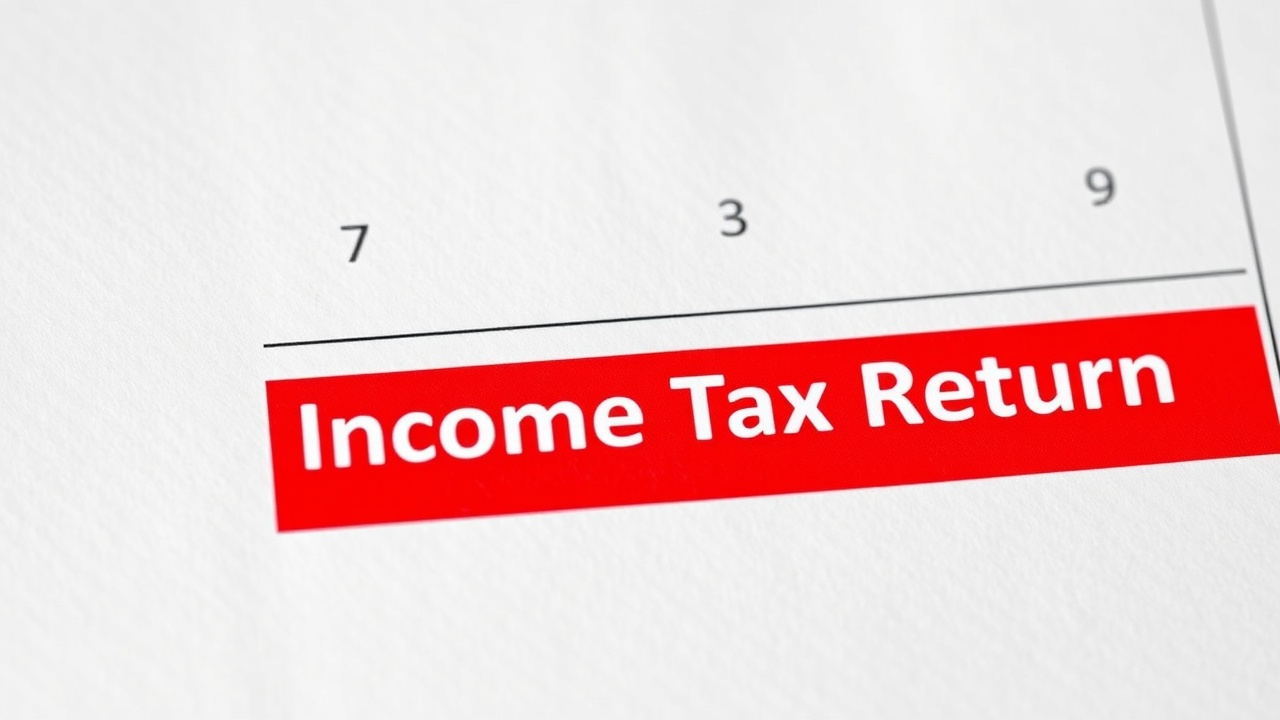Hey there! Getting ready to tackle your income tax return for FY 2024-25? Don’t worry; it might seem daunting, but we are here to break it down for you. This guide will walk you through the essential dates, deadlines, and everything you need to know about ITR filing, so you can confidently file your income tax and stay compliant with the Income Tax Department.
Understanding Income Tax and ITR Filing

What is Income Tax?
Income tax is a levy imposed by the government on your income. It is a direct tax, meaning you pay it directly to the government. The amount you pay depends on your total income and the applicable tax slabs. Think of it as your contribution towards building a better nation – the funds collected go towards public services, infrastructure, and various welfare programs. The Income Tax Act outlines all the rules and regulations surrounding income tax, ensuring a fair and structured system for everyone. Knowing the basics is crucial before diving into ITR filing for the year 2024-25.
Importance of Filing Income Tax Returns
Why bother filing your income tax return (ITR)? Well, it’s not just about complying with the law; it is about responsible citizenship and unlocking several financial benefits. Filing an income tax return is essential, as it is your return of income to the government. An ITR serves as proof of your income and tax payments, which is super handy when applying for loans, visas, or even buying property. Plus, it helps you claim refunds for any excess tax deducted (tax deducted at source). Filing the return also helps maintain a clean financial record, establishing your credibility. So, file your ITR on time and enjoy the peace of mind that comes with being tax-compliant! Remember, the deadline for filing is important!
Overview of ITR and Its Types
Okay, so what exactly is an ITR? It stands for Income Tax Return, and it is a form you use to report your income, deductions, and taxes to the Income Tax Department. There are different ITR forms, each designed for specific categories of taxpayers. For example, some common ITR forms include:
ITR-1 for individuals with simple income sources.
ITR-3 and ITR-4, for business professionals and those opting for the presumptive taxation scheme.
Choosing the correct ITR form is crucial for accurate return filing. Understanding the nuances of each form can simplify the filing of income tax and ensure you are not missing out on any applicable deductions or exemptions for FY 2024-25, AY 2025-26. The due date to file is fast approaching, so be prepared.
Key Dates for ITR Filing FY 2024-25

Income Tax Return Filing Deadline
The income tax return filing deadline is the most important thing to discuss. Knowing this date is essential to avoid penalties and late filing fees. For FY 2024-25, which corresponds to AY 2025-26, the Income Tax Department specifies a due date for individuals to file their ITR. Missing this due date can lead to unnecessary financial burdens and potential scrutiny from the Income Tax Department. Therefore, mark your calendars and make it a priority to file your income tax return well before the last date! Let us ensure you file your ITR and fulfill your responsibilities as a responsible taxpayer.
Filing Due Dates Explained
Now, let’s dive a bit deeper into the nuances of filing due dates. Generally, the due date to file an income tax return for individuals can vary depending on your specific circumstances. To understand the potential deadlines, keep these points in mind:
For individuals not subject to audit, the standard filing due date is typically July 31st of the assessment year. So, for FY 2024-25 (AY 2025-26), this would be July 31, 2025.
If you are a business professional or if your accounts are subject to audit under the Income Tax Act, the due date is usually extended to September 30th of the assessment year.
However, it’s always wise to double-check with the Income Tax Department’s official notifications, as these dates can sometimes be extended. Be aware of all this to file your ITR on time!
Last Date to File ITR for AY 2025-26
So, what happens if you miss the original due date to file your ITR? Don’t panic! The Income Tax Act allows you to file a belated return. A belated return is essentially an income tax return filed after the original deadline. While you can still file an income tax return, there are consequences. You’ll be subject to a late filing fee under section 234F, and you might also accrue interest on any outstanding tax liability. Also, you may lose the benefit of carrying forward certain losses. The last date to file a belated return is typically December 31st of the assessment year. So, for AY 2025-26, you’d generally have until December 31, 2025, to file a belated return. However, it’s best to avoid late filing altogether. Ensure that you file your ITR within the stipulated time to avoid these issues!
Consequences of Late Filing
Understanding Late Filing Penalties
Missing the due date to file an income tax return can lead to some unpleasant financial consequences. The Income Tax Department imposes a late filing fee under Section 234F of the Income Tax Act for those who file their ITR after the deadline for filing. The amount of this late filing fee depends on your total income. For instance, if your total income exceeds ₹5 lakh, the penalty can be ₹5,000. However, if your total income is below ₹5 lakh, the penalty is capped at ₹1,000. Remember, timely tax filing not only keeps you compliant but also saves you from these unnecessary charges. So, make sure to file your income tax return well before the due date to avoid late filing penalties! Filing of income tax is very important!
Impact on Tax Refunds
While you can still file a late return, doing so might affect your ability to receive your tax refunds promptly. The Income Tax Department typically processes refunds for returns filed on time more quickly. When you file an income tax return late, the processing of your refund might be delayed. So, file your ITR on time to get your refunds on time! Moreover, some provisions of the Income Tax Act that allow you to carry forward certain losses might not be available if you file your ITR after the due date. Therefore, it is always best to file your income tax return before the itr filing deadline so you can fully use the benefits available and get your refunds faster. Consider the due date to file your ITR.
Options to File Late ITR
Even if you have missed the original return due date, you are not entirely out of options. The Income Tax Act allows you to file a late return, giving you a chance to rectify the situation. Remember, even when you file an income tax return late, it is still necessary to do so. The last date to file a late return is usually December 31st of the assessment year, following the end of the financial year. So, for FY 2024-25 (AY 2025-26), you have until December 31, 2025, to file your ITR. However, keep in mind that doing so will attract a late filing fee and may affect the carry forward of certain losses. You can also file a revised return if you notice any errors in your original return, even after the due date for filing, as long as you do so before the assessment is complete or before the end of the assessment year. Filing of ITR is very important.
Steps to File Your Income Tax Return
Gathering Necessary Documents
Before you even think about logging into the Income Tax Department’s portal, take a moment to gather all the essential documents. This will streamline the entire ITR filing process and minimize the chances of errors. You’ll need to collect several key items, including:Your PAN card and Aadhaar card.Bank statements and Form 16 (issued by your employer).Details of any investments or deductions you plan to claim under the Income Tax Act.Remember to also collect all investment proofs, such as ELSS, PPF, etc, to file your income tax return and claim deductions. The deadline for filing is fast approaching, so prepare the documents. Having these documents ready will make the actual filing of the income tax return a breeze. Proper documentation helps in tax filing and ensures accuracy.
Your PAN card and Aadhaar card.
Bank statements and Form 16 (issued by your employer).
Details of any investments or deductions you plan to claim under the Income Tax Act.
Remember to also collect all investment proofs, such as ELSS, PPF, etc, to file your income tax return and claim deductions. The deadline for filing is fast approaching, so prepare the documents. Having these documents ready will make the actual filing of the income tax return a breeze. Proper documentation helps in tax filing and ensures accuracy.
Online vs Offline ITR Filing
You have options in ITR filing: online and offline. Online ITR filing is convenient, faster, and the preferred method for most taxpayers. The Income Tax Department portal allows you to e-file your ITR directly, and it even pre-fills some information based on your PAN. However, if you prefer a more traditional approach, you can file an income tax return offline by downloading the ITR form, filling it out manually, and submitting it to the Income Tax Department. Offline IT filing is typically more suitable for senior citizens or those with limited access to technology. Choose the method that suits your comfort level and resources, but remember that online filing of ITR generally leads to quicker processing and refunds. The due date to file your ITR is approaching, so start early.
Common Mistakes to Avoid While Filing
Itr filing can be tricky, and even seasoned taxpayers can make mistakes. One of the most common errors is choosing the wrong ITR form. Ensure you select the correct ITR form based on your income sources. Another frequent mistake is entering incorrect PAN or Aadhaar details. Double-check these numbers carefully! Be meticulous when claiming deductions. Only claim deductions you are eligible for, and have the supporting documents ready. Also, ensure that you have disclosed all your income in your return of income when you file your income tax return. Avoiding these common pitfalls will help you file an income tax return accurately and avoid potential scrutiny from the Income Tax Department. Make sure you do not miss the due date for filing. It is crucial to avoid errors while filing of ITR.
Frequently Asked Questions about ITR Filing
What if I Miss the Filing Due Date?
Sometimes, life gets hectic, and you could miss the tax filing deadline. Don’t panic! The Income Tax Act allows you to file a late return even after the due date for filing. The last date to file a late return is typically December 31st of the assessment year. However, keep in mind that you will be subject to a late filing fee under Section 234F, and you might also accrue interest on any outstanding tax liability. You may lose the benefit of carrying forward certain losses. While it is always best to file your income tax return on time, filing a late return is better than not filing your ITR at all. File to avoid further complications.
Can I Amend My ITR After Filing?
May I know if you realized you made a mistake after you filed an income tax return? Don’t worry; you can file a revised return to correct any errors or omissions. The Income Tax Act allows you to file a revised return before the assessment is complete or before the end of the assessment year, whichever is earlier. This gives you a chance to rectify any inaccuracies and ensure you comply with the Income Tax Department’s regulations. So, if you spot a mistake, file a revised return to set things right. Make sure to carefully review the revised details before you file your itr. The due date to file is important to consider.
What is the Process for Filing an Extension?
While the Income Tax Act does not generally provide for individual extensions for filing an income tax return, in some extraordinary circumstances, the Income Tax Department may extend the due date for all taxpayers. Keep an eye on official announcements from the Income Tax Department for any such extensions. Requests for extensions are typically considered only in cases of natural disasters or widespread disruptions. Also, remember that if you are subject to audit under the Income Tax Act, the due date to file your ITR is automatically extended to September 30th. You should always aim to file your income tax return on time to avoid any complications, and remember the ITR filing deadline. The filing date is essential to consider. Filing of ITR is very important.





